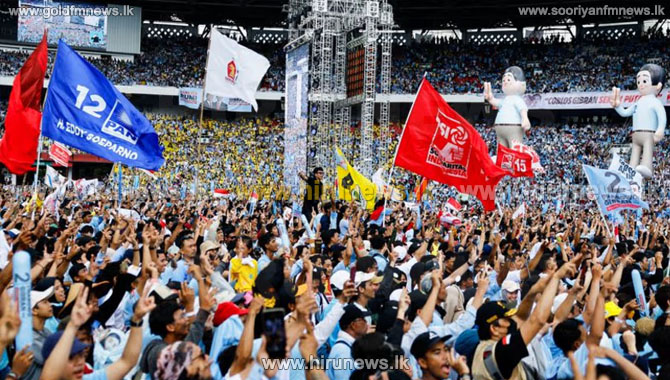With three presidential candidates vying for the nation's leadership, the electoral landscape is dynamic and charged with anticipation. Under current electoral rules, a candidate must secure at least 50 percent of the national vote and a minimum of 20 percent of the vote in each province to avoid a runoff. The leading candidate, former general Prabowo Subianto, and his vice-presidential nominee, Gibran Rakabuming Raka, are anticipated to dominate the first round, according to various polling institutions. However, the prospect of achieving an outright victory or facing a runoff remains uncertain.
The runoff will see the first- and second-placed candidates go head-to-head in polls set for Jun 26.
The contenders face formidable opponents in Anies Baswedan, the former Jakarta governor, and his running mate, Muhaimin Iskandar, as well as Ganjar Pranowo, the former Central Java governor, and his running mate Mahfud MD.
According to credible polling institutes such as Lingkaran Survei Indonesia (LSI), Prabowo is projected to secure a narrow victory in the first round with 50.7 percent of the vote, based on surveys of 1,200 respondents. Additionally, Indikator, another reputable pollster, forecasts Prabowo's significant support in key regions like East Java, where he is expected to garner 56.2 percent of the votes.
The final pre-election survey released by the reputable Indikator Politik Indonesia on Friday (Feb 9) showed Mr Prabowo and his running mate Gibran Rakabuming Raka scoring an electability of 51.8 per cent.
Mr Anies Baswedan and Mr Muhaimin Iskandar (24.1 per cent) came in second, while Mr Ganjar Pranowo and Mr Mahfud MD (19.6 per cent) were in third.
The latest surveys by Populi Center (conducted from Jan 27 to Feb 3), Political Weather Station (Jan 21-25), and Lingkaran Survei Indonesia (Jan 16-26) also put the Prabowo-Gibran pairing’s electability at 52.5 per cent, 52.3 per cent and 50.7 per cent respectively.
Recent projections by Indikator suggest that Prabowo is on the verge of clinching an outright victory, signaling a potential shift in the political landscape. As Indonesia braces for this landmark electoral event, the nation stands at a crossroads, poised to chart its course for the future under the leadership of its chosen representatives.
In the world's biggest single-day election, Indonesians will choose a new president and vice president, a parliament, and lawmakers among 20,000 administrative posts across the country.
Each voter will on five ballot papers choose their preferred presidential and vice presidential pairing, lawmakers at the national, provincial, and regency level, and a regional senator to advise the national parliament.
There are roughly 205 million registered voters and turnout in past elections has been about 75%, according to the International Foundation for Electoral Systems, a U.S.-based organisation that provides technical support for elections.
Voters have a six-hour window to cast their ballots. Indonesia has three timezones and the first polls, in the east, open at 2200 GMT on Feb. 13, and all will be closed by 0600 GMT on Feb. 14. Voting booths will be overseen by election officials, party members and independent observers to safeguard against manipulation. Polls must be closed nationwide before counting can begin.+
Voters cast a secret ballot and dip fingers in indelible ink to prevent duplicate voting.
While an official vote count by the poll body is expected to last late into election night, quick counts by independent survey agencies should provide an early indication of results from 0800 GMT.
Political parties need 4% of votes to qualify for national parliament. A presidential candidate needs more than 50% of votes cast overall and at least 20% of votes in more than half the country's provinces to win.












